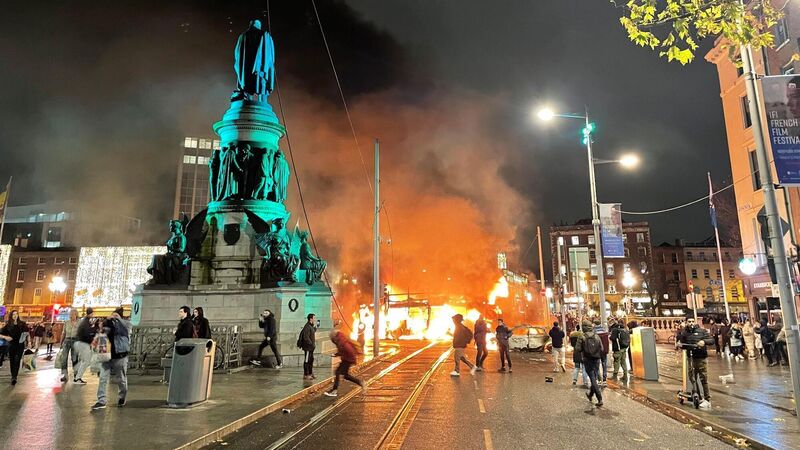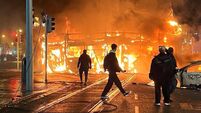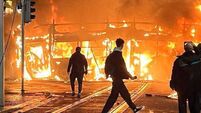Dublin riots review says gardaí urgently need new public order resources

The review was set up in the wake of the Dublin riots in November 2023 in the wake of an attack on Parnell Square East where five people were injured, including three young children. File picture: Brian Lawless/PA
New public order policies are urgently needed as gardaí still rely on protocol from 2017 despite major societal changes post-pandemic and the increasing influence of the internet on protests, a new review has found.
Low garda numbers are also a major concern for public order, identified in a newly published Policing Authority Review of Public Order Policing.














